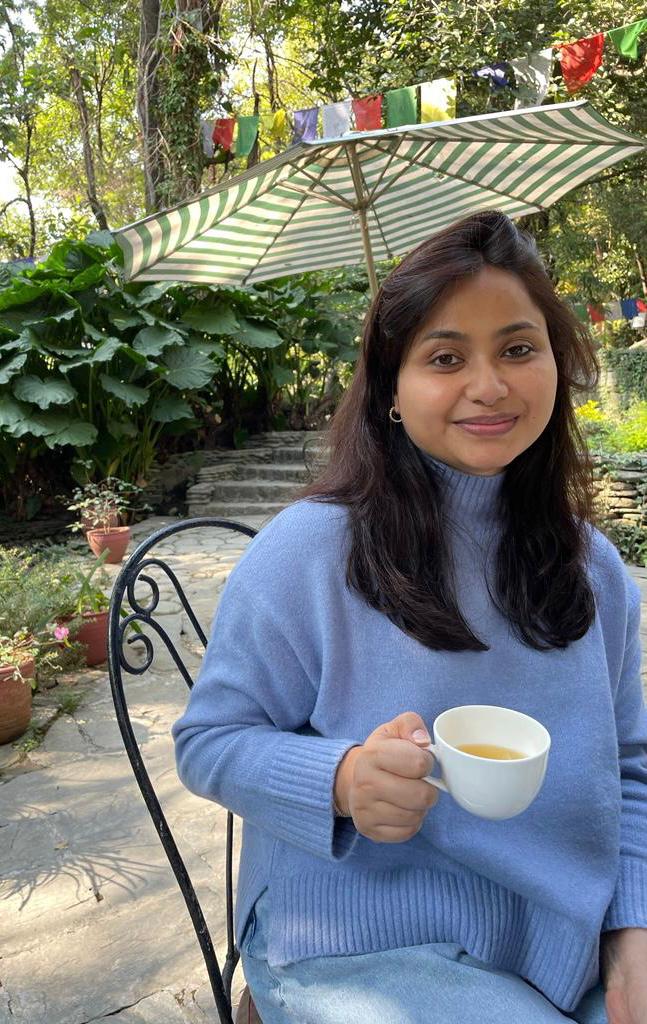
Content : Overview | Ayurvedic Perspective | Vata Dosha | Kapha Dosha | Faq
Overview
Menopause is the natural phase in women’s life. In Ayurveda menopause (“Rajo Nivrutti”) is a predominance of Vata dosha in the body. It is technically not considered a disease or disorder. When women bleed it’s a natural purification (“swabhavaj”), when it comes to an end we need to eliminate the toxins by gently cleansing (“shamana”).
A very high percentage of women go through a series of symptoms at the onset of menopause. Leading a healthy lifestyle beforehand helps in making this journey smooth. It is easier to embrace the changes and bring mental calmness within oneself.
Ayurvedic Perspective
Ayurveda identifies this period where Vata dosha is dominant. Therefore it is important to balance Vata, but all three doshas in ayurveda have an effect and Doshic balance is important through Ayurvedic Lifestyle and Diet.
Different Doshas imbalance leads to different types of symptoms. Therefore it is not one fits all. And you have to individually understand your body better.
Vata Dosha Menopause: Symptoms – Stress anxiety, pain, mood changes, internal as well as vaginal dryness, feeling cold, irregular periods, insomnia, mild hot flashes, constipation, bloating, and joint pain.
Pitta Dosha Menopause: Symptoms –Prone to Hot temper, anger, irritability, feeling hot, hot flashes, night sweats, heavy periods, excessive bleeding, urinary tract infections, skin rashes, and acne
Kapha Dosha Menopause: Symptoms- Weight gain, lethargy, fluid retention, laziness, depression, lacking motivation, slow digestion
Here are some diet tips according to dosha’s in Ayurveda to avoid menopause symptoms:-
Vata Dosha
Vata Dosha Diet tips-
Include:
Avoid:
Pitta Dosha
Pitta Dosha Diet tips-
Include:
Avoid:
Kapha Dosha
Kapha Dosha Diet tips-
Include:
Avoid:
Faq
What is menopause according to Ayurveda?
Menopause, called “Rajo Nivrutti” in Ayurveda, is the natural cessation of menstrual cycles. It reflects a predominance of Vata dosha and is considered a normal phase rather than a disorder, requiring gentle cleansing and balance of the doshas.
What are common menopause symptoms for each dosha?
How can diet help manage menopause symptoms?
Ayurveda recommends diet tailored to your dominant dosha. Warm, nourishing foods for Vata, cooling and alkaline foods for Pitta, and light, dry foods for Kapha can reduce symptoms and maintain doshic balance.
Which lifestyle practices support menopause in Ayurveda?
Regular exercise like walking or yoga, early bedtime, meditation, oil massages, and exposure to sunlight (especially for Kapha) help maintain balance and reduce menopause symptoms.
What herbs are beneficial during menopause?

Nutritionist and Dietician, Ruhi Rajput is a renown name, championing the integration of nutrition, lifestyle, and mindfulness She has over a decade of valuable experience, empowering health and nutrition through holistic approach.
Recognised as India's top Dietician and Nutritionist expert, with experience in Clinical Nutrition & Ayurvedic Dietetics. Ruhi has crafted a niche for herself with her excellence in gut health, natural Hormone balance with food and weight loss programs. She is popular for her holistic health approach and offers comprehensive solutions to gut health, weight management, autoimmune disorders and diet for Diabetes, Kidney and fatty liver.
Drawing from her expertise in nutrition and functional medicine Ruhi Rajput has made it easy for countless individuals to reach their optimal health goal with commitment to sustainable and holistic approach.